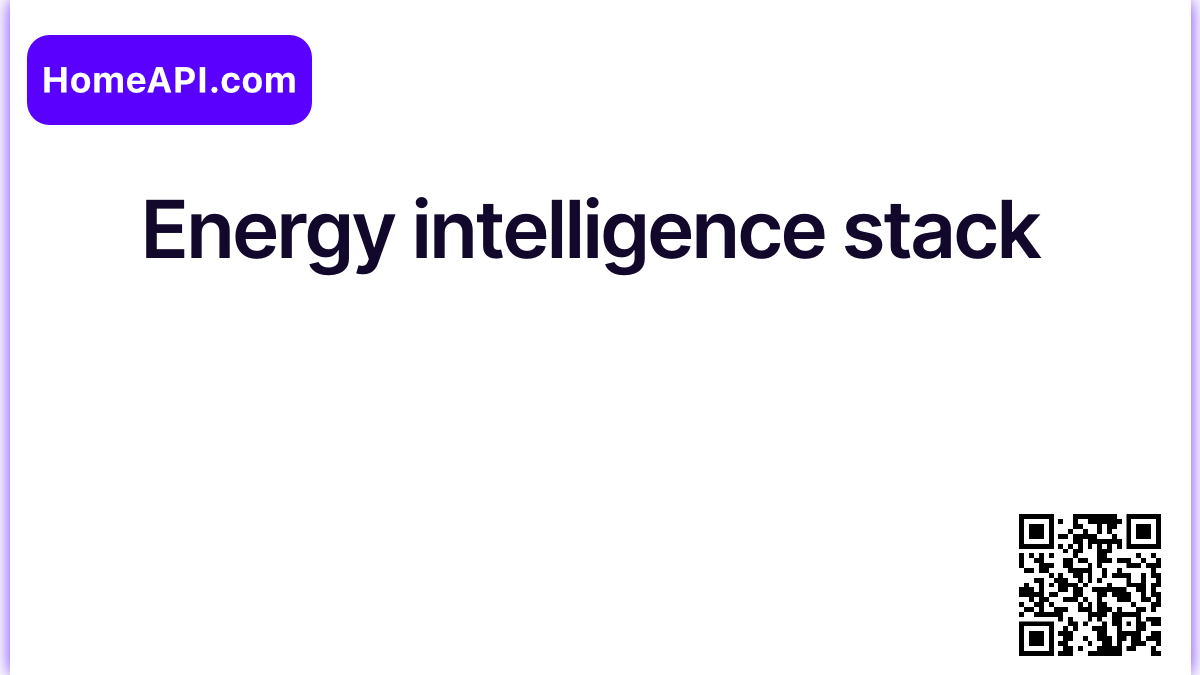Energy intelligence stack

Infrastructure survey
Nebula launches every energy engagement with a thorough audit of electrical infrastructure. Engineers document service entrances, transformer ratings, subpanels, and distribution paths across the estate. They capture specifications for generators, photovoltaic arrays, wind resources, and battery systems. Digital twins model load flow scenarios and harmonic behavior, helping the team identify bottlenecks before integrating advanced controls. Where legacy equipment remains, bridge controllers normalize data so the stack views the estate as one coherent grid.
Demand intelligence
Granular load data underpins the platform. Smart breakers, branch circuit monitors, and plug level sensors capture consumption down to individual kitchens, theaters, or wellness suites. Nebula classifies these loads into priority tiers that reflect life safety, property protection, and lifestyle requirements. Machine learning models forecast demand under varying conditions such as events, extreme weather, or travel schedules. Forecast accuracy empowers the system to stage storage, generator start times, and tariff strategies with precision.
Generation orchestration
The energy stack coordinates solar arrays, micro turbines, and backup generators into a balanced portfolio. Nebula considers panel orientation, shading patterns, and seasonal irradiance to predict solar yield. When clouds roll in, the system ramps storage discharge ahead of the drop to avoid drawing from the grid during premium rate windows. If a generator cycle becomes necessary, the platform tests the engine beforehand, warms it in stages, and synchs seamlessly to avoid flicker inside the residence.
Storage strategy
Battery systems act as both resilience tools and financial assets. Nebula optimizes charge and discharge schedules by reading tariff tables, net metering policies, and household commitments. During low cost periods, the system replenishes storage and preconditions climate loads to bank thermal energy. When tariffs peak, Nebula draws from batteries, throttles discretionary loads, and sells excess generation back to the grid if regulations permit. Battery health algorithms track state of charge, depth of discharge, and cell temperature to extend lifespan.
Microgrid operation
For estates with expansive grounds or multiple structures, Nebula can form a microgrid. Intelligent switchgear isolates the property from the utility when disturbances occur, keeping essential systems powered. The platform orchestrates frequency and voltage using inverter controls while balancing phases to prevent equipment stress. Once grid power stabilizes, Nebula resynchronizes and reconnects without manual intervention. Detailed event logs document every transition for regulatory and insurance review.
Power quality management
High end residences house sensitive electronics, elevators, and industrial grade kitchens. Nebula monitors voltage sag, harmonic distortion, and transient events. Active filters and dynamic voltage restorers deploy automatically to protect equipment. If the system detects repetitive issues traced to utility feeds or third party equipment, it generates recommendations and coordinates remediation with contractors. Residents see power quality dashboards distilled into actionable metrics rather than technical jargon.
Carbon and transparency reporting
Many homeowners demand visibility into their environmental impact. Nebula tracks emissions intensity per kilowatt hour by combining utility data with renewable production. Monthly and annual reports translate this data into carbon savings, renewable penetration, and progress against sustainability goals. When households pursue certifications or disclose performance to stakeholders, the platform exports audit ready documentation with timestamped records.
Water and thermal integration
Energy touches more than electrons. Nebula manages pool heating, domestic hot water, and thermal storage tanks. Waste heat from generators or data rooms can preheat water or support radiant systems. During hot seasons, absorptive chillers or geothermal wells relieve electrical demand. The platform weighs these interactions in real time, selecting the mix that delivers comfort while minimizing peak draw.
Resilience drills
Preparedness cannot wait for an outage. Nebula conducts simulated grid failures, generator exercises, and storage tests on a regular cadence. Drills confirm that automatic transfer switches, fuel reserves, and communication lines perform as designed. Results feed concierge briefings for household staff, so everyone knows how the estate behaves during different disruption scenarios. The system staggers testing to avoid guest inconvenience and coordinates refueling or maintenance afterward.
Financial optimization
Energy markets reward informed operators. Nebula integrates tariff intelligence, demand response programs, and incentive schedules. When utilities issue real time pricing notices, the platform calculates financial impact and recommends actions such as load shifts, generator runs, or battery dispatch. Residents and estate managers receive concise prompts outlining potential savings. After execution, Nebula reconciles forecasts with actuals to sharpen future strategies.
Regulatory compliance
Estates intersect with building codes, fire regulations, and utility interconnection standards. Nebula maintains compliance templates tailored to jurisdictional rules. Permit documents, inspection certificates, and testing reports live inside the platform, with automated reminders before renewals lapse. During audits, the system assembles evidence packages that demonstrate maintenance history, safety drills, and protective device settings.
Concierge oversight
The concierge team reviews energy performance data, arranges preventive maintenance, and coordinates vendor access. When homeowners plan renovations or fleet expansions, analysts model the energy impact and advise on infrastructure upgrades. Concierge specialists can adjust schedules for EV charging, accommodate film crews, or prioritize life safety circuits ahead of extreme weather. Residents stay informed through concise briefings rather than technical dashboards.
Future development
Nebula continues investing in adaptive algorithms that merge energy data with climate and security insights. Upcoming releases explore vehicle to home integration, dynamic carbon accounting, and predictive analytics that identify failing components weeks before conventional alarms trigger. These advancements keep the energy intelligence stack ready for the next decade of residential resilience requirements.
